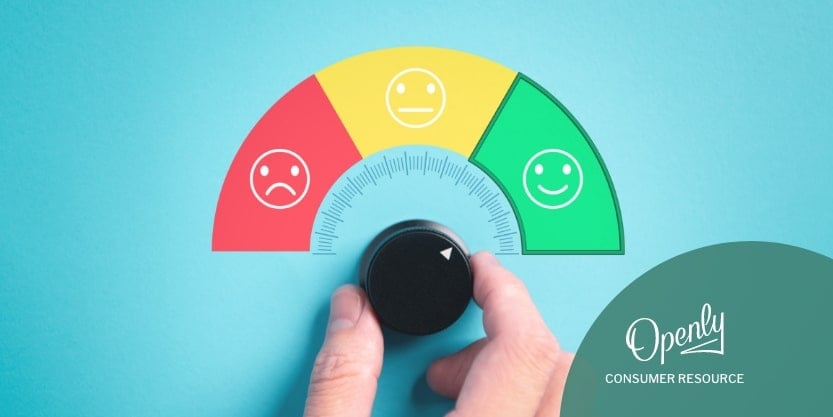Most people are familiar with credit scores, having likely taken out a loan or opened a credit card at some point in their lives. Insurance scores are less understood, and can be a mystery to consumers. They can also be a game-changer for homeowners looking to reduce their home insurance rates.
Fortunately, we’re here to help. In this article, we'll explore the nuances of these two scores, their differences, and their impact on home insurance premiums.
At a glance:
- Insurance scores assess your risk as a policyholder and can significantly impact your home insurance rates.
- Payment history, credit utilization, and credit inquiries are crucial factors in determining your credit score and potentially your insurance score and rates.
- Not all states allow for insurance scores to be used in pricing for policies.
Understanding the basics: what is an insurance score?
An insurance score is a numeric rating of your risk profile as a policyholder used exclusively by insurance companies. Insurance companies use this score to assess the likelihood of a policyholder filing an insurance claim and to estimate the potential financial risk associated with insuring the policyholder.
Although insurers don’t use credit directly, they do use a credit-based insurance score to determine a policyholder’s risk.
It is important to note that not all states allow insurance scores to be used. You can check with your insurance agent whether they impact your policy pricing.
The role of credit scores
Individuals who have lower credit scores are statistically more likely to file insurance claims, according to the Consumer Financial Protection Bureau. Insurance scores are credit-based, and higher credit scores tend to correlate to higher insurance scores.
Factors that influence credit scores
There are a number of factors that impact credit scores, including the following:
- Payment history—Late payments, defaults, bankruptcies, and collections negatively impact credit scores.
- Credit utilization—High credit card balances compared to limits can lower your score.
- Established credit history—A longer credit history generally indicates more experience managing credit, positively.
- Credit mix—A mix of credit accounts may demonstrate your ability to manage different types of credit responsibly.
- New credit—Opening multiple new credit accounts within a short period may suggest higher-risk behavior.
- Credit inquiries—Too many hard inquiries within a short period can indicate higher risk behavior and may lower your score.
How insurance scores differ from credit scores
Understanding the significance of—and differences between— insurance and credit scores is important for anyone looking to find the best insurance rates.
Purpose
While an insurance score is used by insurance companies to assess policyholder risk (helping to predict the likelihood of future insurance claims, etc.), a credit score is primarily used by lenders to assess an individual's creditworthiness and predict the likelihood of a borrower repaying their debts on time.
Use
Insurance scores are used exclusively by insurance companies to evaluate risk and determine premiums in combination with a variety of other factors. Credit scores are mainly used in the financial industry by lenders, banks, credit card companies, and other financial institutions.
Regulation
Insurance scoring is regulated on a state-by-state basis. Some credit history factors may not be used in insurance scoring. Credit scoring is regulated on a national level by laws such as the Fair Credit Reporting Act and the Equal Credit Opportunity Act.
Scoring models
Insurance companies may develop their own insurance scoring models based on their specific risk assessment needs, whereas there are established credit scoring models used by credit bureaus and lenders, such as FICO and VantageScore.
How insurers use your financial history
Your home insurance premiums may be directly affected by your insurance score. Insurers use sophisticated models to evaluate a policyholder’s financial history and determine risk profiles. Those with higher scores can be rewarded with lower premiums, reflecting the lower projected risk. Conversely, individuals with lower scores may face higher costs.
Improving your scores for better rates
One of the key methods for enhancing your insurance score lies in implementing practical measures. In fact, most of the strategies you can implement to improve your credit-based insurance score will have the dual effect of also boosting your credit score.
However, it’s important to remember that insurance scoring models can vary among insurance providers. Here are some strategies specifically tailored to improving your insurance score:
- Consistently pay bills on time to demonstrate financial responsibility
- Use credit wisely and pay down outstanding balances to reduce your overall debt-to-credit ratio
- Regularly monitor credit reports from all three major credit bureaus—EquifaxⓇ, ExperianⓇ, and TransUnionⓇ—for inaccuracies or fraudulent activity
Navigating home insurance with your scores in mind
The relationship between credit-based insurance scores, credit scores, and home insurance rates is complex but manageable. Insurance rates are not arbitrary; they are carefully calculated based on a combination of factors, including your insurance score and other risk factors. Taking control of these aspects of your financial life can lead to not only better insurance rates but also improved overall financial well-being.
We provide this information to help you understand insurance. Any coverage is subject to the terms of your policy. Please refer to your policy and declarations page for complete coverage details.
The trademarks used herein are trademarks or registered trademarks of their respective owners.
1 FICO. "Credit Scores vs. Insurance Scores." Accessed 3 January 2024. https://insurancescores.fico.com/CreditvInsurance
2 Consumer Financial Protection Bureau. “What is a credit score?” Published 28 August 2023. Accessed 3 January 2024. https://www.consumerfinance.gov/ask-cfpb/what-is-a-credit-score-en-315/
3 Federal Deposit Insurance Corporation. “VIII Scoring and Modeling.” FDIC. Accessed 12 February 2024. https://www.fdic.gov/regulations/examinations/credit_card/pdf_version/ch8.pdf
4 Louis DiNicola. “What Is the Difference Between Credit-Based Insurance Scores and Credit Scores?” Experian. Published 21 November 2023. Accessed 3 January 2024. https://www.experian.com/blogs/ask-experian/what-is-the-difference-between-credit-based-insurance-scores-and-credit-scores/




